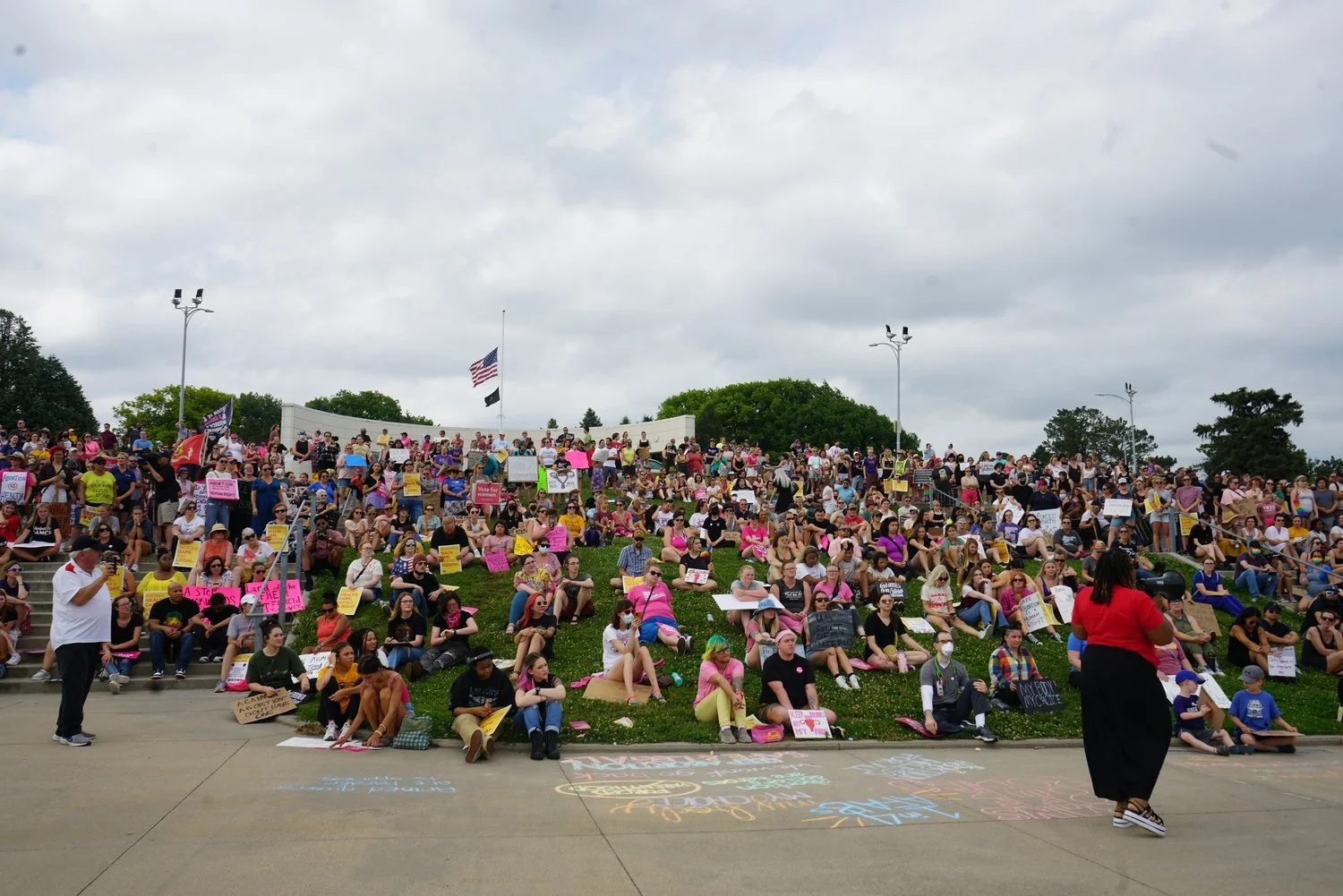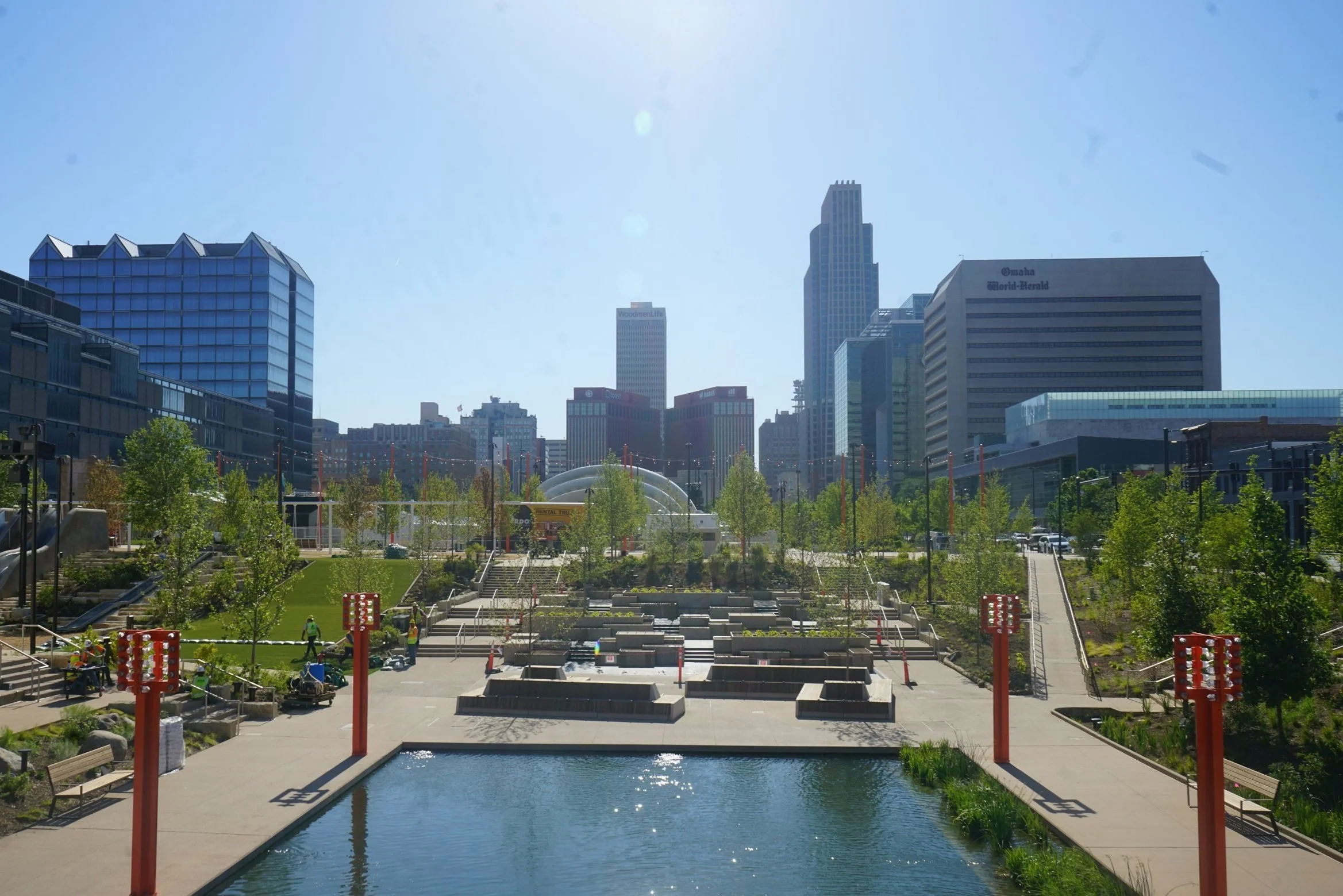Should American Rescue Plan Dollars go to Nonprofits or Businesses in North Omaha? Senators Weigh in
By Jr Contributor Molly Ashford
With over $1.3 billion in federal aid coming to Nebraska through the American Rescue Plan, elected officials representing Omaha are advocating for funds to be spent in North Omaha. State senators Terrell McKinney (LD-11) and Justin Wayne (LD-13), in particular, are pushing for investment in businesses to build the foundations of self-sustaining operations.
The American Rescue Plan Act (ARPA)
was signed into law by President Biden in March of 2021, providing financial relief to all municipalities and communities across the country. ARPA allocated nearly $1.1 billion in federal funds to the state of Nebraska, and another $667 million will be disbursed to city and county governments. Douglas County received a total of $110.8 million, and Omaha received $112 million.
While there are some guidelines on how states must use the funds, (they cannot be used to offset a reduction in tax revenue, nor can they be deposited in a rainy-day fund or pension plan), states are given substantial flexibility in how to invest the money. Senators McKinney and Wayne held a town hall with constituents and community leaders to discuss how ARPA funding can be used to improve North Omaha. “Resources like this are rare to come to our community,” Sen. McKinney said during the meeting. “It’s an opportunity for us to take advantage of these resources, especially since North Omaha has been disenfranchised—for as long as I’ve been alive, and well before.”
The city has identified seven priority areas on which to focus spending: revenue replacement, tourism, community programs, broadband expansion, affordable housing, violence prevention and intervention, and public space improvements.
The county priorities are similar, with a specific emphasis on supporting “disproportionately impacted communities.”
The Douglas County Board of Commissioners ARPA committee calculated that almost $2.2 million of the ARPA funds will go towards replacing most of the state revenue lost during the pandemic.
Commissioner Mary Ann Borgenson said each commissioner received $2.5 million to allocate in their own district, following the ARPA guidelines for how it may be spent.
“It’s not enough to create a bunch of nonprofit programming when we aren’t putting money into anyone’s pockets.” - Sen. McKinney
Sen. McKinney is particularly interested in funding projects that have the potential to alleviate the effects of poverty. He believes that the starting point is giving direct assistance to businesses and entrepreneurs in North and South Omaha because the benefits of temporary support programs fade with time, often without leaving a lasting impact.
For him, sustainability is key. He said it would be “money well spent” if the ARPA funds were used to “empower the entrepreneurs and businesses within the community so that they are able to grow, be sustainable and hire individuals from the community.” Sen. Wayne agrees. However, it can be difficult to identify suitable investment opportunities, given that it is a one-time payment and not a continuous funding source. “My priority is to look at projects that are big, one-time hitters,” Sen. Wayne said. “There’s an opportunity to do some things that we have never done in North Omaha.”
Sen. Wayne brought up the swaths of unused land in the downtown area near Eppley Airfield as a potential opportunity for investment. Despite the prime location, there is no infrastructure in place to attract businesses-- something that could be addressed with the ARPA funding, or with the money coming to Nebraska through President Biden’s infrastructure bill.
The city held a period of public comment earlier this year and received more than 700 comments and suggestions. The public’s top five priorities (not including ‘other’) roughly aligned with the city’s top priorities: public space improvements, affordable housing, community programs, violence prevention and intervention programs and aid to the tourism and hospitality industries.
There will be further opportunities for public comment before the money is distributed in the spring of 2022.












